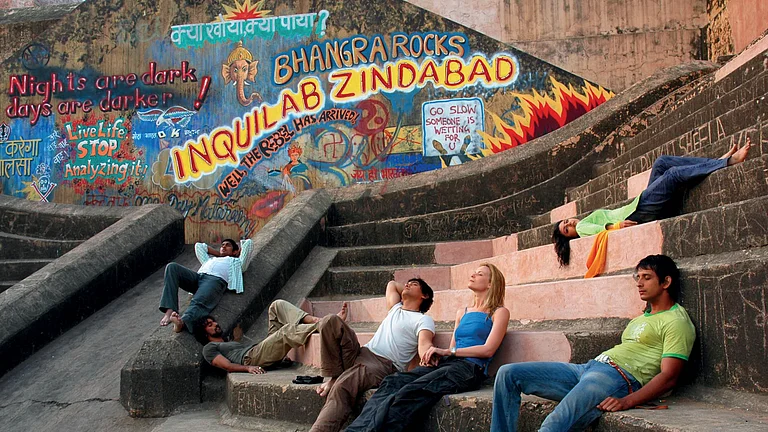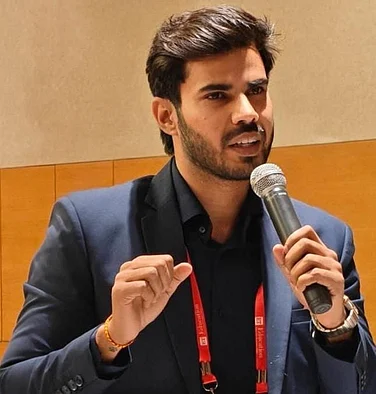In an era where logistics forms the backbone of India’s economic growth, Roadcast is redefining how businesses move, manage, and optimise operations through technology. Founded by Rahul Mehra and his team, Roadcast has emerged as one of India’s leading logistics automation platforms, harnessing the power of AI, IoT, and predictive analytics to simplify and modernise fleet and supply chain management. By offering scalable, modular, and affordable automation tools, the company empowers both large enterprises and small fleet operators to enhance visibility, efficiency, and reliability across their logistics networks.
In this exclusive conversation, Mr. Rahul Mehra, Co-founder of Roadcast, shares how the company is driving digital transformation in India’s logistics sector, addressing long-standing challenges of affordability and accessibility, and shaping a new era of intelligent mobility. He also discusses the future of logistics innovation, the role of automation in sustainability, and how Roadcast is positioning India as a global hub for smart, tech-enabled logistics solutions.
1. Can you tell us about Roadcast’s vision and how it is transforming the logistics and mobility-tech landscape in India?
Our vision is to transform the logistics industry through innovative, accessible and affordable automation solutions that are implementable across verticals. By combining various technologies like AI-driven fleet tracking, telematics and predictive analytics, we are helping organisations transition from manual or semi-digital operations to data-driven ones. Our focus is to provide end-to-end strategies for businesses and complement operational optimisations - scheduling, compliance, maintenance and route efficiency. With this, businesses are now able to get greater visibility, higher reliability and enhanced safety. We aim to set a global benchmark for next-generation AI-based logistics solutions and redefine the way businesses move, manage, and optimise their operations.
2. How does Roadcast address the challenges of accessibility, affordability, and efficiency in logistics management?
Accessibility, affordability and efficiency are three of the major challenges for most businesses in logistics management. We address these challenges by designing modular, lightweight platforms applicable to both SMEs and large companies. For instance, a 50-vehicle FMCG distributor using our platform reduced idle time by 12% in 3 months. Some solutions are definitely too expensive or overly complicated, so we prioritise innovative solutions that are simple and also do not compromise capability. To reduce reliance on manual processes, we work on automated monitoring, fuel tracking, and predictive maintenance, all of which save both time and money. Our platform allows businesses to route-optimise, reduce downtime and stay compliant at minimal investment. All of it is possible due to advanced tools that can be deployed at different scales of operations. This emphasis allows technology adoption to go beyond large fleets and reach small operators as well, ensuring inclusivity and operational efficiency in India's fragmented logistics ecosystem.
3. What are your thoughts on the future of logistics technology and its role in fueling India’s economic growth?
Logistics technology is becoming pivotal in transforming India's economic growth. With real-time location tracking, predictive maintenance, route planning, and driver monitoring, supply chains can run with greater reliability at reduced operating costs. With the National Logistics Policy targeting a reduction of logistics cost to 8% of GDP, AI-driven route planning and predictive maintenance will be critical in meeting this national goal.
People think technology fixes inefficiency alone, but operational integration and user adoption are just as important. As e-commerce, manufacturing, and EV adoption speed up, logistics tech will facilitate quicker, secure, and more efficient movement of goods. By shortening delays, minimising fuel use, and enhancing fleet productivity, advanced logistics solutions can contribute directly to increased productivity and competitiveness, positioning technology as a pillar of India's overall economic growth.
4. How do you perceive the future challenges facing the logistics and mobility-tech industry?
Uncertainty in logistics and mobility tech stems from fragmented adoption, regulatory heterogeneity, infrastructure gaps, and cost-sensitive operations. Unlike Europe’s standardised EV ecosystem, India’s charging infra gaps make route optimisation for EV fleets a bigger challenge we’re directly addressing. Although technology adoption is increasing, fleets are still dependent on traditional processes, bringing friction to integration. Rapid EV adoption and intricate supply chain needs add more layers of operational complexity. As opposed to global markets with homogeneous regulations, India demands flexibility and scalability in solutions. The solution is in building platforms that weigh automation, predictive intelligence, and affordability. Getting over these challenges will set apart operators who can scale effectively from those hindered by operational complexities, converting complexity into opportunity using intelligent technology deployment.
5. What are the biggest regulatory and operational hurdles logistics-tech companies face today? How has Roadcast maintained consistent growth despite industry challenges?
Regulatory challenges are state-specific compliance rules, insurance requirements, and changing EV policies. For instance, interstate fleet compliance requires separate permits, which creates data silos. Our platform automates reporting so operators don’t lose efficiency in paperwork. Operational challenges are typically fragmented fleets, tech resistance, and high expense for small players. Roadcast has continued growth by creating solutions that are modular, cost-effective, and flexible to differing operational realities. Unlike other competitors that focus on big enterprises, the platform serves different fleet sizes, showing concrete ROI within a short time through fuel optimisation, predictive maintenance, and real-time visibility. By blending practical technology with quantifiable results, we enable businesses to embrace automation with confidence and achieve regular growth despite regulatory redundancy and market fragmentation.
6. What key factors differentiate profitable and scalable logistics-tech companies from those struggling in the sector?
Successful and scalable logistics-tech enterprises value simplicity, adaptability, and measurable impact. Solutions need to be deployable in multiple industries, be cost-reducing, improve operational safety, and grow with business expansion. Struggling companies tend to over-engineer technology or ignore real-world adoption issues, like fragmented fleets or price sensitivity. Insights derived from data need to make it through to actionable decisions, and platforms need to be affordable and easy to use. Our accessibility focus, modular deployment, and operational efficiency are perfect examples of how scalable solutions power adoption, profitability, and client trust. Conversely, technology without actual implementation often doesn't create sustainable value in the industry.
7. What’s next for logistics innovation - AI, IoT, EV integration, or something new? How is Roadcast leveraging AI, IoT, data, and automation to improve fleet management, deliveries, and overall supply chain efficiency?
The future of logistics innovation is the intersection of AI, IoT, EV integration, and automation. AI provides predictive route planning, maintenance forecasting, and demand analytics. IoT offers real-time vehicle and asset visibility. EV adoption introduces complexity in terms of battery monitoring, charge optimisation, and route planning. We integrate all three technologies to provide smarter, data-driven operations, enhancing fleet efficiency, minimising downtime, and optimising supply chains. Although certain industry voices exaggerate the short-term influence of AI, actionable insights, rather than mere data collection, drive outcomes. By combining automation and predictive intelligence into real-world workflows, we guarantee tangible operational enhancements for various fleet sizes.
8. With the evolving demands of the logistics sector, how does Roadcast ensure high-quality, reliable, and tech-driven experiences for its clients and partners?
Top-quality experiences result from a user experience focus, efficiency, and reliability of operation. Platforms are intuitive, scalable, and adaptive, allowing effortless integration with diverse client operations. Predictive analytics, automation of compliance, and real-time monitoring improve reliability and decision-making. While other competitors focus on flashy features but less practical utility, our focus is on simplicity and actionable insights. Ongoing feedback loops, performance tracking, and sticking to central values like planning ahead and delivering to the promise provide clients with consistent, results-driven outcomes, building long-term trust and facilitating scalable, technology-enabled logistics management.
9. How is Roadcast positioning itself as a torchbearer of India’s emerging logistics-tech ecosystem?
We are leading efforts to resolve India-centric logistics problems such as cost consciousness, dispersed fleets, and varied operating realities. By merging global best practices in AI, automation, and telematics with local knowledge, we provide pragmatic and scalable solutions. Whereas others pursue innovation while ignoring adoption hassles, we work on operating impact, price, and user experience. For us, this means setting the standard for the industry but also promoting adoption across industries and elevating overall ecosystem standards. The outcome is a more connected, efficient, and future-proofed logistics-tech ecosystem in India.
10. What role does Roadcast see itself playing in shaping the global narrative of efficient, sustainable, and tech-led logistics solutions from India?
We are working on highlighting India’s capability of providing efficient, sustainable and technology-enabled logistics solutions to the world. By addressing operational issues at scale, combining AI, IoT, and EV readiness, the platform shows the potential for cost-efficient, high-impact logistics to emerge from emerging markets. By showing that cost per vehicle can be reduced by 15–20% without enterprise-scale investments, Roadcast is exporting India’s model of frugal, scalable innovation. As much as narratives around the world are drawn to Western innovation, India provides an example of frugal, scalable, and pragmatic logistics technology. Our mission is to take these solutions international, demonstrating that efficiency, sustainability, and automation can coexist while establishing global standards, making India the next-generation logistics and mobility-tech innovation leader.


























